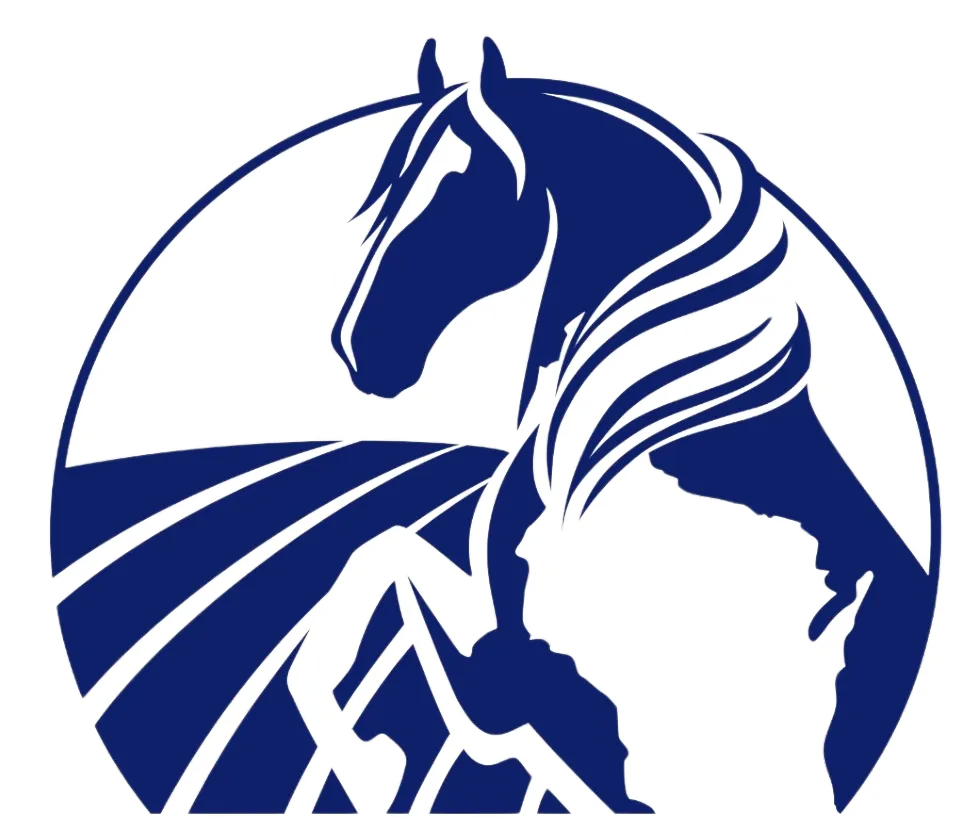Trails
Trail Master Certification Course
2026 Trail master certification course Info & Application
May 13 – 16, 2026 | Southern Kettle Moraine, Dousman, Wisconsin
Join us for an in-depth, hands-on training designed to equip participants with the latest knowledge and skills in trail design, construction, and maintenance. This four-day program focuses on sustainable practices for all types of trails, environmental stewardship, and leadership techniques for working with volunteer teams. Whether you are an experienced trail builder or a newcomer looking to enhance your skills, this course offers valuable insights and practical tools for creating and maintaining high-quality trails.
Each participant will receive a detailed booklet that aligns with the course curriculum, offering guidance and resources for all segments. The program is divided into classroom sessions and outdoor fieldwork, culminating in a leadership-focused practical session where participants apply their knowledge as crew leaders.
Course Highlights
The course is structured into three main classroom sessions followed by outside implementation of the daily lessons learned. The fourth day takes you through crew leader skills and leading a part of the crew project
Start times and session durations are subject to adjustment based on class needs.
This course is your opportunity to deepen your understanding of trail sustainability and gain practical skills to enhance your trail projects.
Space is limited, so register early to secure your spot!
Click on the links below to access the application & printable details.
Trail Design and Layout
This session focuses on the critical foundations of trail design, emphasizing long-term sustainability and reduced environmental impact.
Key Topics Include:
- Principles of sustainable trail design to minimize erosion and ecological disruption.
- Techniques to address water/soil relationships and manage trail durability.
- Avoiding user conflicts and impact problems through thoughtful planning.
- Practical flagging and layout exercises to reinforce classroom learning.
Schedule:
8:30 AM: Classroom session (8:00 AM start on subsequent days)
10:30 AM: Break
10:45 AM: Continue session
11:45 AM: Test
12:00 PM: Lunch (provided)
12:30 PM: Outdoor session (flagging and layout drills)
3:30 PM: Final comments and wrap-up
Trail Construction
This session delves into building trails that withstand use and weather while maintaining accessibility and safety for all users.
Key Topics Include:
- Proper clearing techniques for different types of trail use.
- Best practices for constructing durable tread surfaces and managing trail width.
- Advanced methods for building cribbing, raised tread sections, switchbacks, and water crossings.
- Guidance on constructing and maintaining bridges and boardwalks.
Schedule:
8:00 AM: Classroom session
10:30 AM: Break
10:45 AM: Continue session
11:45 AM: Test
12:00 PM: Lunch (provided)
12:30 PM: Outdoor session (hands-on construction techniques)
3:30 PM: Final comments and wrap-up
Trail Maintenance
Maintaining trails is as vital as building them. This session focuses on practical approaches to ensuring trails remain safe, accessible, and sustainable over time.
Key Topics Include:
- Techniques for addressing common maintenance challenges.
- Long-term repair strategies to reduce environmental impacts.
- Methods for trail hardening and rehabilitating disused or damaged trails.
- Hands-on fieldwork to practice maintenance techniques.
Schedule:
8:00 AM: Classroom session
10:30 AM: Break
10:45 AM: Continue session
11:45 AM: Test
12:00 PM: Lunch (provided)
12:30 PM: Outdoor session (maintenance drills)
3:30 PM: Final comments and wrap-up
Crew Leadership
The final day is dedicated to leadership skills and practical application, offering participants the chance to lead a crew in real-world trail work. This outdoor session emphasizes team management, clear communication, and efficient task delegation.
Key Activities Include:
- Leadership exercises designed to build confidence and team dynamics.
- Managing trail construction or maintenance projects with a team.
- Final review and feedback from instructors.
Schedule:
8:00 AM: Session One (trailhead briefing and preparation)
10:45 AM: Session Two (field leadership on the trail)
12:00 PM: Lunch (provided)
12:30 PM: Session Three (practical leadership and wrap-up tasks)
3:30 PM: Final comments, course review, and certificate presentation
What To Bring
Participants should come prepared for both classroom and outdoor activities:
- Notebook and pen for taking notes.
- Comfortable, durable work boots or shoes.
- Work gloves.
- Weather-appropriate clothing for outdoor sessions, as activities will proceed rain or shine.
- A willingness to learn, collaborate, and engage in hands-on trail work!
Check Out The Recaps Of Previous Trail Master Certification Courses Below!
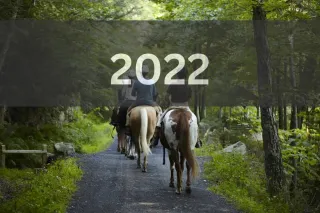
2022 Trail Master Certification Course Recap
Check Out The Overview of The 2022 Trail Master Certification Course ...more
Trail Master Course Recap
January 01, 2025•1 min read
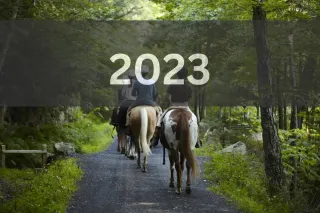
2023 Trail Master Certification Course Recap
Check Out The Recap of The 2023 Trail Master Certification Course ...more
Trail Master Course Recap
January 01, 2025•2 min read
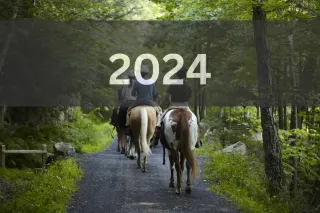
2024 Trail Master Certification Course Recap
Check out the 2024 Trail Master Certification Course Recap! ...more
Trail Master Course Recap
January 01, 2025•2 min read
Wisconsin Horse Council
Capital Improvement Grant
Promoting and Creating Horse Trails in Wisconsin
The primary purpose of the Wisconsin Horse Council (WHC) capital improvement grant is to provide funding to increase trail access and amenities for equestrians. ADA compliance is important to keep in mind as a trail or building enters design or construction phases. WHC developed this grant to fund property enhancements, including the building of permanent structures. The Capital Improvement Grant program is not an annual grant, but one that allows the WHC Trails Committee to recognize and support larger projects that will be of benefit to the equestrian community. The Capital Improvement Grant is a 50% matching grant. WHC encourages volunteerism and effectively turns volunteer time and effort into project funds, when a log of volunteers’ names and donated hours are maintained and submitted with the Grant Completion Report.
This means that the 50% of matching funds (approximately 175 hours) may be achieved in volunteer time. Volunteer hours are valued at $29.00/hour.
WHC Trails Committee accepts and reviews applications throughout the year. Grant application acceptance or denial is determined within three months of receipt. Approved grant projects requiring multiyear fundraising will receive a pledge of funding. Funds are mailed when work on the project begins.
To be eligible for the Capital Improvement Grant, projects must be projected to cost over $50,000. Grant funding is available up to $10,000.
Please click on the links below to access the guidelines and application.
Trail Grant Overview
WHC Trail Grant Program Guidelines
WHC Trail Grant Program Application
These grants are meant for public equestrian trails or shared use trails which include equestrian riding/driving.
The grants are awarded in two distinct categories, new trail development and trail improvements, enhancements, or repairs.
The money cannot be used for routine trail maintenance, administrative or operating expenses, trails on private property, non-equestrian trails, food for work days, thank you gifts or awards, or liability insurance for volunteers.
See the Program Guidelines for specific information.
Applications must be postmarked by February 1st.
Completion or Interim Reports must include the Volunteer Log Sheet and are due by December 1st. Contact the Program Coordinator for more information or with questions or contact the WHC office.
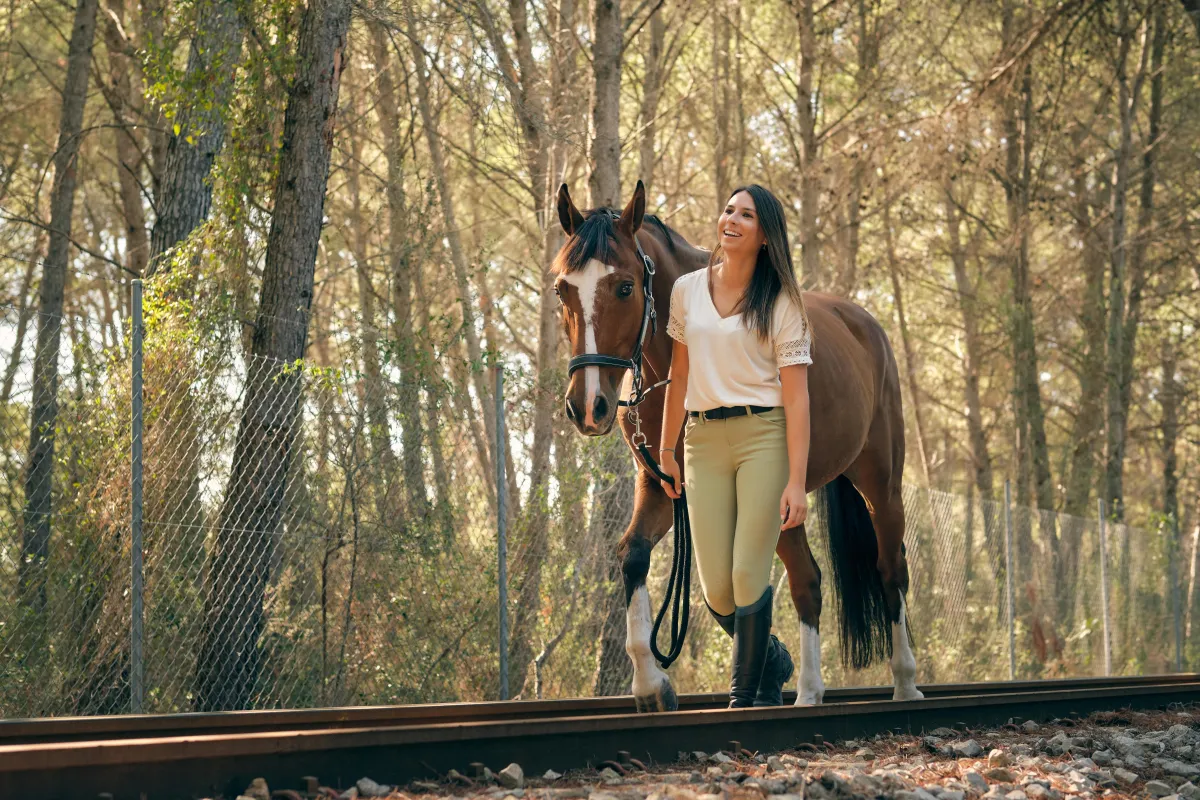
Please click on the link below to see a breakdown of the funds that the WHC Trail Grant Committee has given out over the years.
The Wisconsin Horse Council has given out over $416,300.00 from 1995 to 2024!!!
WHC Trail Grant Recipients Summary - Updated 3/18/25
In 1998 Wisconsin Horse Council Trails committee started a trail grant program that has since grown to more than anyone expected. Since that first year when a total of $3500 was given out for 6 grants in 4 parks including Underdown , Oconto County Forest, Ahnapee Trail and Yellowstone. The program has been beneficial to countless parks around the state.
Since then, the Wisconsin Horse Council –Trails Committee has awarded $416,300 for improvements on our trails. Each grant recipient must match the grant with at least 50% in kind amount. But wait it gets better! Many of the projects that have been undertaken far exceed the 50% match, making that total closer to a half a million dollar in improvements to the public equine trails in Wisconsin!
In working at Midwest Horse Fair, we promote joining the horse council, and the most frequently asked question is - What does Wisconsin Horse Council do for me? This $500,000 is only a small part of the contributions of WHC to the equine industry, but the results quietly affect many in a positive experience on the trails.
It was a tough year for grants during the COVID years, the Trails Committee had the difficult job of cutting $32,650 in requests down to awarding the $17,000 we had available. Watch for things to be changing in Gibbs Lake, Horseshoe Falls, Underdown, Narrow Gauge, Duck Egg, Southern Kettle Moraine, Halls Creek/Bush Lake. Please be sure to contact the friends group of your local park, and see if there is anything you can do to help out! With all of the potential budget cuts, we all are going to have to step up and make sure that our trails stay in good shape for our use!
Trail Resources and Advocacy
ExtremeTerrain Clean Trail Grant Program
ExtremeTerrain, the auto parts retailer known for customizing Jeep Wranglers and Toyota pick-ups, continues to give back through the Clean Trail Initiative program in 2019. Launched in 2015, the program seeks to reward local clubs and organizations with small, project-specific, grants to be used for trail maintenance and restoration.Those who maintain equestrian trails are welcome to apply. The program has already given out $21,650 in trail project grant funds. Learn more and apply here.
Trail Safe!
TRAIL SAFE! is a unique safety training program designed specifically for National Park Service (NPS) Trail Volunteers, but is useful to everyone! It's based upon NPS Operational Leadership Training, where the Human Factor of safety is explored. Trail Safe! allows volunteers to learn from their own homes on-line.
The Trail Safe! series is found in eight video lessons, each ranging in length from 18 to 40 minutes long. Viewing the entire eight lesson series will take approximately three hours. Watch them over the course of multiple days, or "binge watch" the entire series in three hours—it's up to you—but please watch them in numeric order from Lesson 1 through Lesson 8. Or, watch them as a group/club and learn together. This is a great activity for part of a club meeting. Remember – this is a program to further educate volunteers on working safely while working on trails.
Click on this link to be redirected to the lesson site.
WHC Equestrian Representation Back on the Governor's State Trails Council - by Kricket Jewett
We are pleased to announce that Kricket Jewett, WHC Director has been appointed to the Governor's State Trails Council. Congratulations, Kricket!
Please click on the link below to read an article that Kricket wrote regarding this appointment.
EQUESTRIAN REPRESENTATION BACK ON THE GOVERNOR'S STATE TRAILS COUNCIL - (PDF
Horse Trail Advocacy
The following links are provided as resources only and not as endorsements. We do not assume responsibility for content of these sites and views expressed are not necessarily those of WHC.
Back Country Horsemen of America
Equestrian Land Conservation Resource
Recreational Trails Program - Planning and Environment - FHWA
Economic Benefit
- Economic Impacts of Recreation and Tourism:
Recreation and Tourism Activities have significant impacts on regional economies. This site summarizes economic impact concepts and methods, focusing particularly on their applications to recreation and tourism.
Funding and Grants
Nelson-Knowles Stewardship Funds: Knowles-Nelson Stewardship funds support several DNR-administered grant programs. Available to local governments and nonprofits, Stewardship grants fund recreational development and conservation land purchases statewide.
Kodak American Greenways Awards Program: Kodak, The Conservation Fund, and the National Geographic Society, provide small grants to stimulate the planning and design of greenways in communities throughout America. The annual grants program was instituted in response to the President's Commission on Americans Outdoors recommendation to establish a national network of greenways. Made possible by a generous grant from Eastman Kodak, the program also honors groups and individuals whose ingenuity and creativity foster the creation of greenways.
Recreational Trails Program: This is a federal program administered in most states. Municipal governments and incorporated organizations are eligible to receive reimbursement for the development, rehabilitation, and maintenance of recreational trails and trail-related facilities for both motorized and non-motorized recreational trail uses.
Patagonia: Patagonia funds only environmental work. We are most interested in making grants to organizations that identify and work on the root causes of problems and that approach issues with a commitment to long-term change. We look for programs with a clear agenda for change and a strategic plan for achieving the organization’s goals. Because we believe that true change will occur only through a strong grassroots movement, our funding focuses on organizations that build a strong base of citizen support.
River Alliance of WI: The River Alliance of Wisconsin is a non-profit, non-partisan group of citizens, organizations and businesses dedicated to advocating for the protection, enhancement and restoration of our rivers and watersheds.
Tourism Grant: The Wisconsin Department of Tourism administers a $1.13 million Joint Effort Marketing (JEM) Grant Program. JEM provides partnership funding to help non-profit Wisconsin organizations promote tourism in their area.
Trail Safety Brochures
Check out our new Sharing Trails Safely with Horses Brochure! Simply click on the link below to open a PDF that you can then read and/or print out. Happy Trails!
WHC Sharing Trails Safely with Horses Brochure - (PDF)
Also, please click on the link below to view the Wisconsin Department of Natural Resource's "Wisconsin Trail Etiquette & Safety Guidelines Tips for Trail Users".
It covers tips and responsibilities for all trail users and specific tips and rules for walkers, hikers, backpackers, runners, in-line skating, bicyclists, mountain bikers, equestrians, cross-country skiers, snowshoers, snowmobile, ATV, off-highway motorcycles and 4WD operators.
Please take a moment to read and/or print out this helpful brochure so that everyone may become educated and safe on the trail systems.
WDNR Wisconsin Trail Etiquette & Safety Guidelines Tips for Trail Users
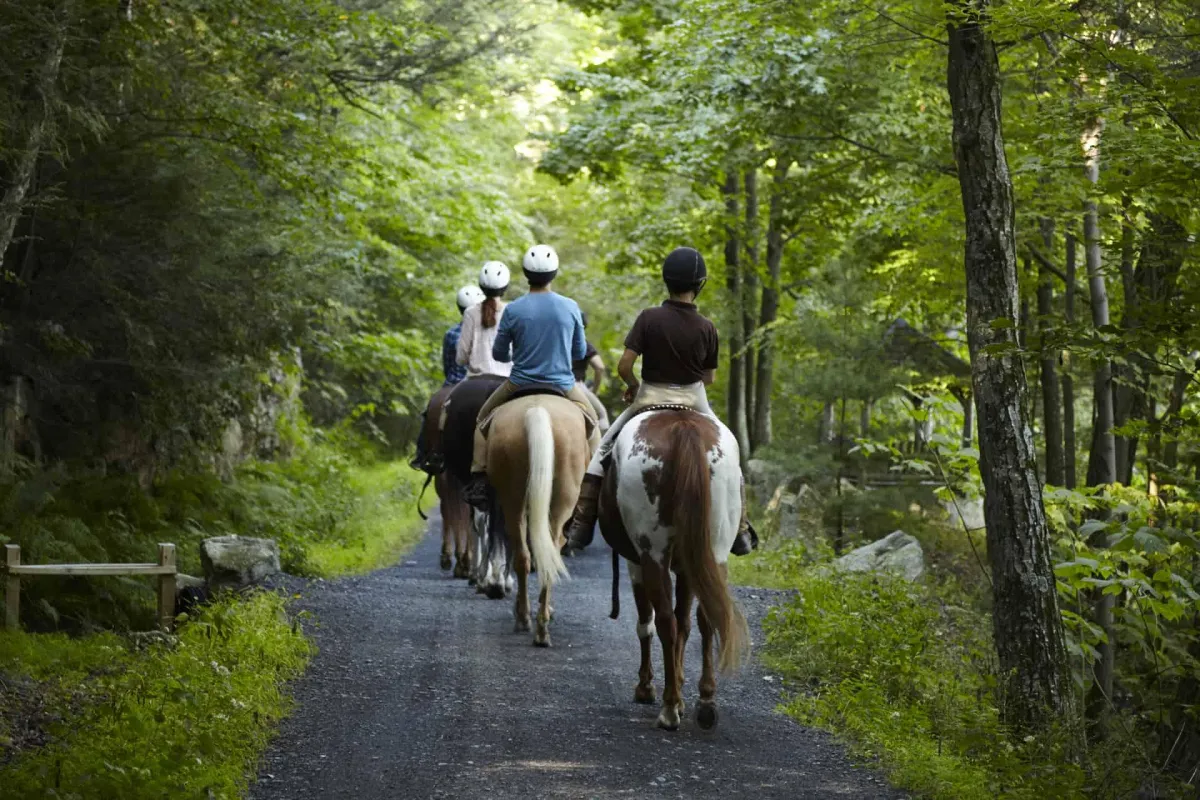
American Horse Council
Trail Directory and Informative
The AHC has developed a directory as an informative piece to assist anyone looking for horse-friendly trails. This directory also includes information on issues that affect the horse industry such as land preservation, and trail etiquette, and offers tips on traveling with horses to make it a safe and enjoyable journey.
Please click on the link below to be redirected to this valuable information.
American Trails Webinar Information

The American Trails brings agencies, trail builders, advocates, and volunteers the latest in state-of-the-art information on all aspects of trails and greenways. Their webinars focus on very specific trail topics and usually include one to three presenters skilled on the topic.
Please click on the link below to be redirected to the American Trails Advancing Trails Webinar Series website page where you can sign up for their webinars.
AMERICAN TRAILS ADVANCING TRAILS WEBINAR WEBSITE LINK
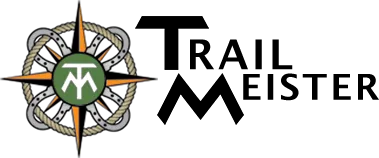
The WHC Trails Committee announces a new source for horse trail information at trailmeister.com. The members of the Trails Committee have been working hard to update this website with the best information available on our horse trails. While the process continues, the information is very valuable to riders now. The Council's Board of Directors has made this directory of trails the Official Trail Directory of the Wisconsin Horse Council.
The Wisconsin Horse Council will no longer be printing a hard copy trail directory. The last edition was the 10th edition.
Please click on the link to check it out!
RIDE WISCONSIN!
WHC Trail Riding/Driving Award Program
Forms & Info for 2026
Trail Riding/Driving Award Program 2026 Guidelines (PDF)
Trail Riding/Driving Award Program 2026 Application (Online Form)
Trail Riding/Driving Award Program 2026 Application (PDF)
Trail Riding/Driving Award Program 2026 Trail Hours Ridden Form (PDF)
Trail Riding/Driving Award Program 2026 Hours Worked on Trails Form (PDF)
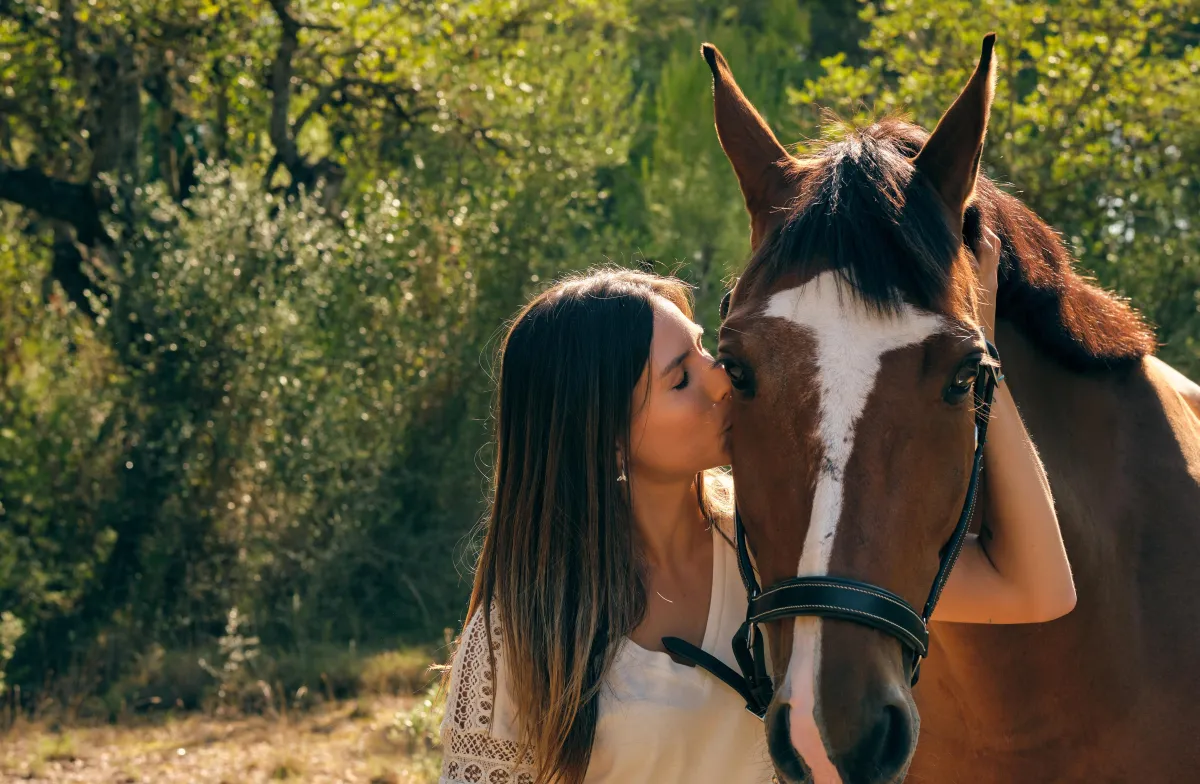
Ride Wisconsin is the WHC Trail Riding/Driving Award Program that is an annual self-supporting program that awards riders/drivers for the hours spent enjoying the trails.
Annual Program membership is $15.
A current WHC Individual membership ($20) or a current WHC Youth membership (free when a parent or guardian is a current WHC Individual member) is required to participate.
If you are not a current WHC member, please send the membership form along with your Riding/Driving program membership form.
Riding/Driving hours must be reported by January 31 of the following year using the approved Annual Log Form.
For more information please contact Jill Feller at (920) 948-9502 or click on her e-mail address below to send her a message. Jill's e-mail address is: [email protected]
WHC Membership Levels
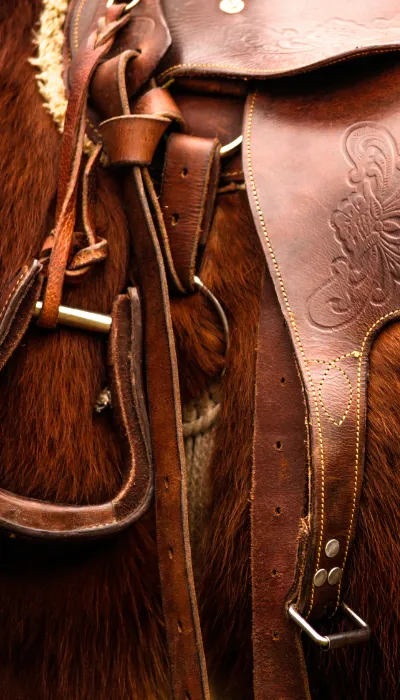
Level 1
This level is for individuals/families only. If your household has more than 1 person becoming member, please choose family during the sign up process.
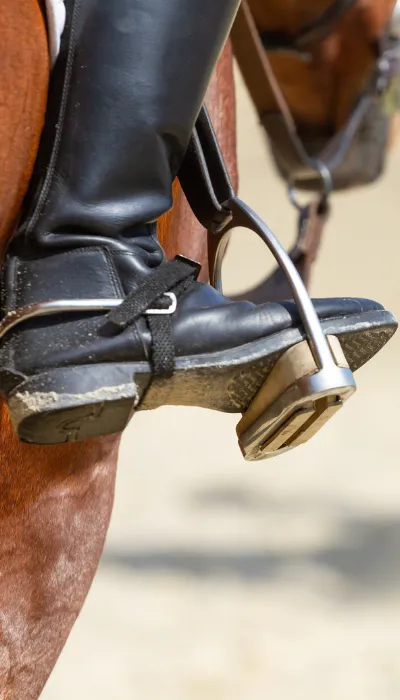
Level 2
This level of membership is for businesses or organizations who want to be a member of WHC but do not want to send a Director to the Board of Directors.
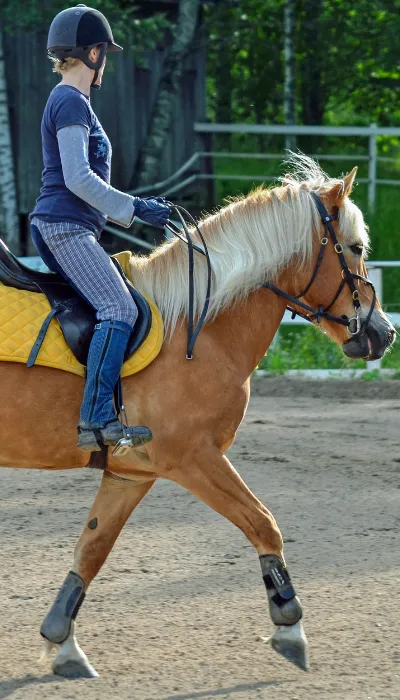
Level 3
This level of membership is for businesses and organizations that want to send a Director to the Board of Directors.
Representing • Protecting • Fostering
Representing, protecting & Fostering a unified equine industry in Wisconsin through leadership, education, service and communication
© 2026 Wisconsin Horse Council, All Rights Reserved
Representing • Protecting • Fostering
Representing, protecting & Fostering a unified equine industry in Wisconsin through leadership, education, service and communication
© 2026 Wisconsin Horse Council, All Rights Reserved
